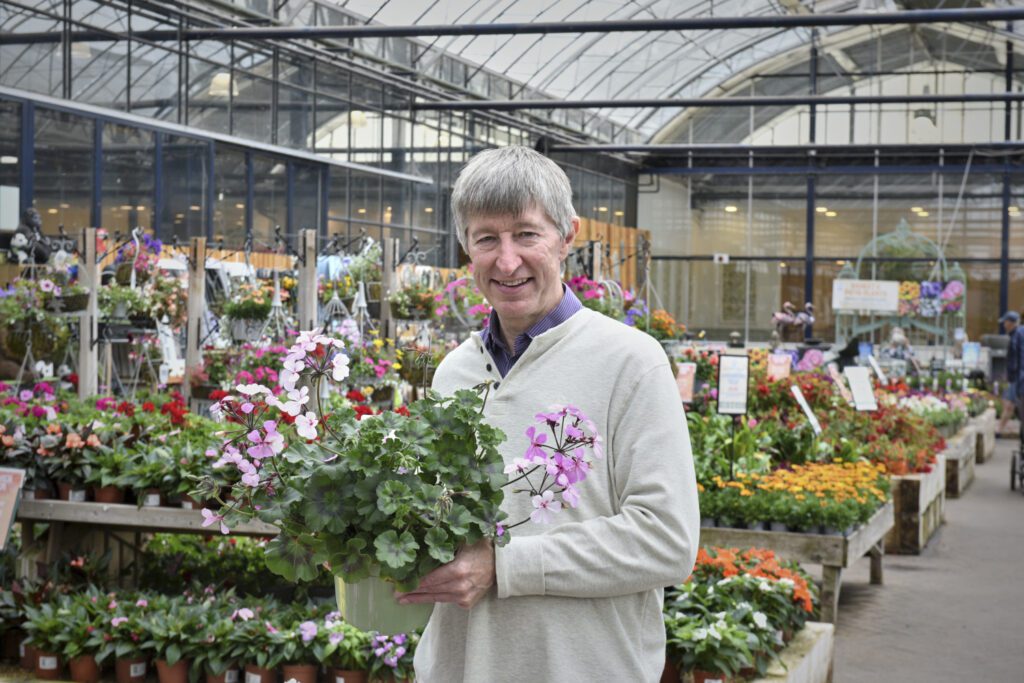Check out these features when sourcing hard landscaping products, advises Peter Burks
In our industry, if the sun shines at the right time the customers will come out in their droves and sales will soar.
This was certainly true over the early months of this year, with March showing a year on year increase of more than 30%. Whilst the heat of the last few months has rather slowed this down, the overall performance is still a positive one in sales terms.
It’s fair to say the offer in garden centres can vary quite considerably and data from the Garden Centre Association’s (GCA’s) Barometer of Trade shows that on average, from the 110 garden centre contributors, annual sales of hard landscaping products will be about £160,000.
The bigger centres however will be producing sales of well over half a million pounds annually and those with an offer that attracts professional landscapers will do many times this figure.
One of the main benefits of being a garden centre member of the GCA is that each centre gets an unannounced inspection by one of our team of five independent inspectors every spring. They inspect over 220 individual factors from the appearance from the road, through the car park, entrance, all retail departments, toilets, catering and finally tills and exit.
Best performers
There is a pass mark that they must achieve or they can be asked to leave the Association and new centres wishing to join also must pass this inspection. We then have scores from all retail departments that we use to celebrate the best in each retail category both in their area and nationally.
The best performing garden centres this year in the hard landscaping category included Chessington Garden Centre in Surrey, Planters Garden Centre in Tamworth and The Millbrook Garden Company in Gravesend.
What is it that sets these centres apart from their competitors. Generally, you will always see a better hard landscaping department if there is a dedicated member of staff, or indeed team, looking after this area.
As hard landscaping products are often sited at the back of the centre, there is a danger they can become rather ignored and forgotten. A team helps to keep the merchandising standards up, the availability good and ensures good interaction with customers. This can be anything from helping the amateur with tips on how to lay paving or fix trellis to helping the professional with specific quotes for materials for larger jobs.
While garden centres might not always have a vast quantity of any particular line they do usually sell an interesting range with a number of more quirky or unusual items.
They will also usually stock products that are at the higher quality end of the range and might also have items made from more sustainable materials such as FSC timber, rubber lawn edgings and decking boards made from recycled plastic pots. These are increasingly becoming a more asked after product as our customers are generally environmentally aware.
GCA members are also at the forefront of customer service and product knowledge within the industry. They will always be able to help with technical queries about plants, furniture or garden chemicals and take pride in ensuring customers are given best advice.
Biosecurity measures
One of the more tangible outcomes following Brexit was the need for this island to control what was coming both in and out of it. Within our industry, this clearly raises the issue of biosecurity – a term that refers to the precautions that need to be put in place to prevent introduction of potentially harmful plant species, pests, diseases and other organisms.
I’m sure we are all well aware of alarming issues when things on this front do run out of control. However, most issues will be caused by microscopic organisms such as bacteria and fungi or live pests.
They will usually enter while living on a host plant that has been imported from a country where this particular pathogen has already developed a stranglehold. The identifying and subsequent either rejection of plant batches or destruction thereof has fallen to the many border control points that intercept every batch of plants coming into the country.
The biosecurity checks have led to delayed deliveries to their final destination as well as adding a significant further layer of cost, so there are many benefits from purchasing plants from nurseries in this country.
There is a huge reduction in plant miles, the distance from production to point of sale or use. The pest and disease problems listed above also do not apply. Once again, I think our environmentally savvy customers much prefer to see UK grown stock as they appreciate all the benefits it will be bringing.
Peter Burks is CEO of the Garden Centre Association and a fully trained horticulturalist who has held directorial and senior management positions for garden centres nationwide for more than 40 years.
wwwgca.org.uk




